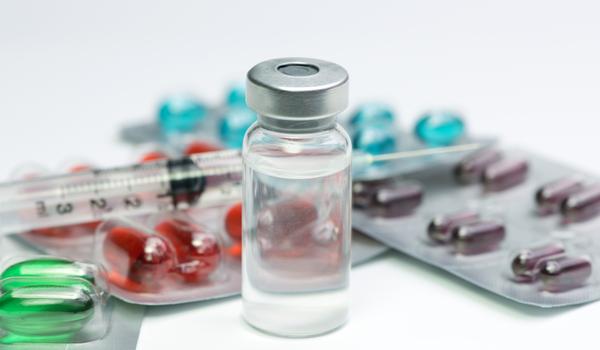What is chemotherapy and how does it work?

Chemotherapy is a medical treatment given to control or kill cancer cells. Chemotherapy works by preventing rapidly growing cancer cells from multiplying; however, it can also damage or kill other rapidly growing cells (such as those cells lining the mouth and gut, as well as hair, skin, and white blood cells), which can lead to a variety of side effects.1–3
Purpose of chemotherapy and finding the right treatment for you
Chemotherapy is used to treat and control cancer, and to shrink tumours before surgery or radiotherapy.1 Chemotherapy is also used to treat cancer that has spread to other parts of the body (metastatic cancer) or that has come back after previous treatment (recurrent cancer).1
Chemotherapy treatment plans are based upon the following factors:
- The type of cancer you have1
- The size and location of the tumour, and whether the tumour is still localised or has spread to other parts of the body; these factors determine the severity (stage) of the cancer1
- Your age, general health, and other medical conditions1
- Any previous cancer treatments and how well you can cope with certain side effects1
After your doctor has assessed these details, he or she will determine whether the best course of treatment for you is chemotherapy on its own or in combination with other treatments, such as radiation therapy, surgery, or newer treatments such as targeted therapy or immunotherapy.1
Discuss your options for treatment using chemotherapy and the possible related side effects with your nurse or doctor.4 For more information about the effects of chemotherapy, go to the Living with cancer section of this site.
Defining the objective of your chemotherapy treatment
Doctors may use chemotherapy in different ways. For example, chemotherapy may be used:
- To shrink a tumour before surgery or radiation therapy (neoadjuvant chemotherapy)1,5
- To eliminate any possible cancer cells that remain after surgery or radiation therapy (adjuvant chemotherapy)1
- Alone, to treat cancers of the blood or lymph system (monotherapy)1,5
- For recurrent cancer, or cancer that has spread to other parts of the body1,5
- To ease cancer symptoms1,5
Questions to ask about your chemotherapy treatment
Do not hesitate to talk with your doctor about your chemotherapy treatment, and make sure you understand all the information provided, even if it means repeating questions.4 You may find it helpful to bring a friend or relative along for these discussions to help take notes and remind you of questions you would like to ask.
Useful questions include:4
- What are the best ways to treat my type and stage of cancer?
- How long will my treatment last?
- What is my chance of recovery with this treatment?
- How will I know whether the treatment is working?
- What are the possible side effects of this treatment?
- Does the treatment have any long-term side effects?
- Will this treatment affect my fertility?
How is chemotherapy given?
Chemotherapy can be administered in several ways:
- Oral: as pills, capsules, or liquids to be swallowed2,6
- Intravenous: injected directly into a vein using a syringe or infusion (a drip)2
- Intramuscular: injected into muscle, usually in the arm, thigh, or abdomen7
- Subcutaneous: injected under the skin, usually in the arm, thigh, or abdomen7
- Intraperitoneal: injected directly into the peritoneal cavity, where the intestines, stomach, and liver are located2
- Intra-arterial: injected into an artery that leads to the tumour8
- Topical: as a cream that is rubbed onto the skin9
If you are prescribed oral chemotherapy, be sure to take these drugs exactly as instructed by your doctor or nurse, and make sure you store them according to the instructions given.6
Treatment frequency
How often you receive chemotherapy is dependent on the type of treatment required for your specific cancer. For instance, many people get the chemotherapy in “cycles”: a treatment dosage is followed by a “rest” period, during which the body has the chance to recover and build up healthy cells.10 For example, the person may receive treatment for 1 week, followed by a 3-week rest period in which no treatment is given. These 4 weeks together make up one chemotherapy cycle.11
Chemotherapy treatment regimens are tailored to the individual needs of each patient.10,11 Do not worry if you notice that someone with the same type of cancer as you is receiving a different treatment regimen to your own.
If you have any questions or concerns about your chemotherapy treatment, do not hesitate to ask your nurse or doctor for advice.
Glossary